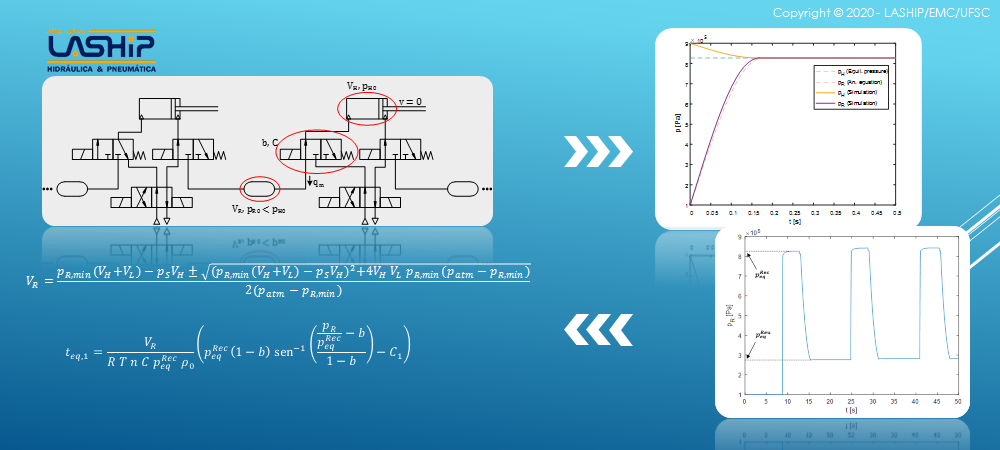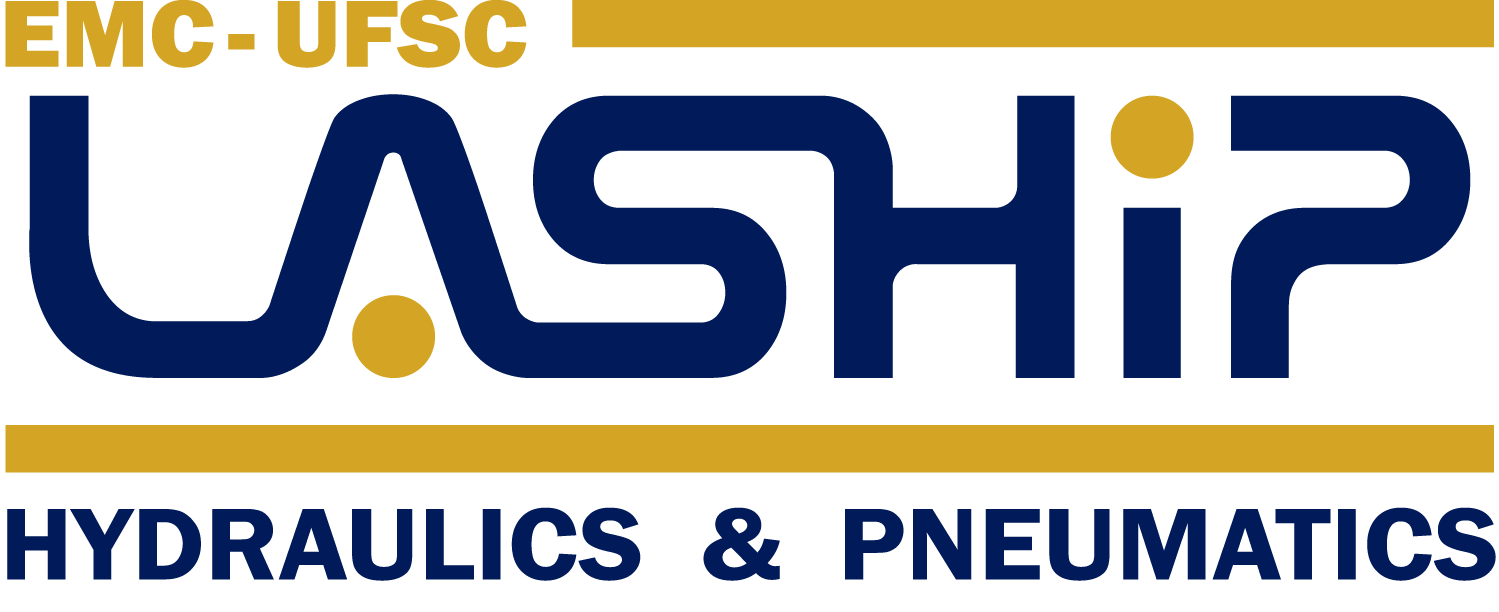Candidate: Nicodemos Monteiro de Farias 
Program: UFSC / POSMEC
Date: March, 2020
Advisor: Victor Juliano De Negri
Abstract: In pneumatic actuation systems with on/off control action, pressurized air is generally eliminated into the environment after mechanical work has been performed. Nowadays, where the demands for energy consumption reduction have a great impact on the choice of a technological solution, it is of fundamental importance the development of techniques that can partially reuse this potential energy that is lost. This reuse is a very broad topic and different solutions can be applied. However, this work deals only with the storage of pneumatic energy from cylinder chambers using intermediate reservoirs for later reuse in other actuation systems that require low pressure levels. For that purpose, first, a circuit configuration is proposed based on identification of the criteria already adopted in examples from scientific literature. Second, an analytical study on recovery and reuse of compressed air is presented taking the proposed system that employs a 3/2 way directional valve and an auxiliary reservoir between the actuator and the main valve in conventional actuation systems (valve-actuator system). The starting point of this study focuses on determining the pressure equalization time between the reservoir and the actuator chamber (implemented on discrete valve control) through an analysis of the continuity equation under certain simplifying assumptions. A way to perform the auxiliary reservoir sizing from the parameters of the actuation system is also evaluated, using the gas state equation, from which the equilibrium pressures are estimated during the reuse process. Furthermore, a mathematical model of the system under study was developed in MATLAB®/Simulink® software to perform simulations and compare them to the response from the simplified models. Then the proposal for reusing energy was applied for a case study (packaging lifting system), verifying, through computer simulation, the effects on the dynamics of the system and energy efficiency. The simulation results showed that, around 34% of compressed air can be saved.
Referência: FARIAS, N. M. Reaproveitamento de Ar Comprimido em Sistemas Discretos de Atuação Pneumática Empregando Reservatório Intermediário. 2020. 106 p. Dissertação (Mestrado em Engenharia Mecânica). Universidade Federal de Santa Catarina, Florianópolis.



